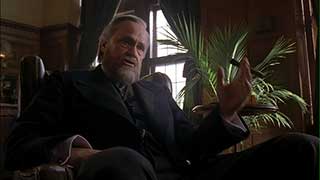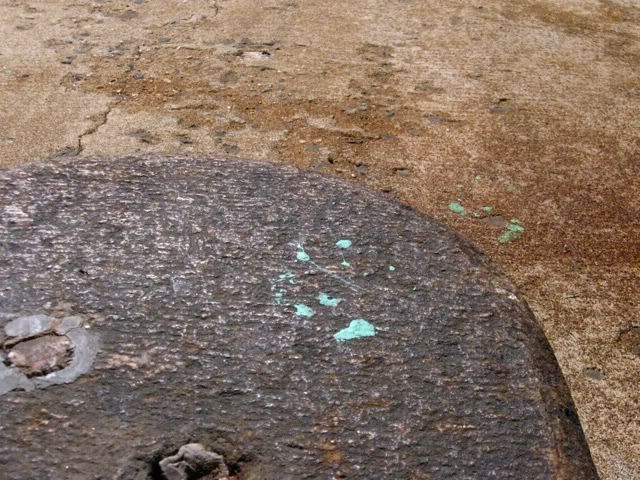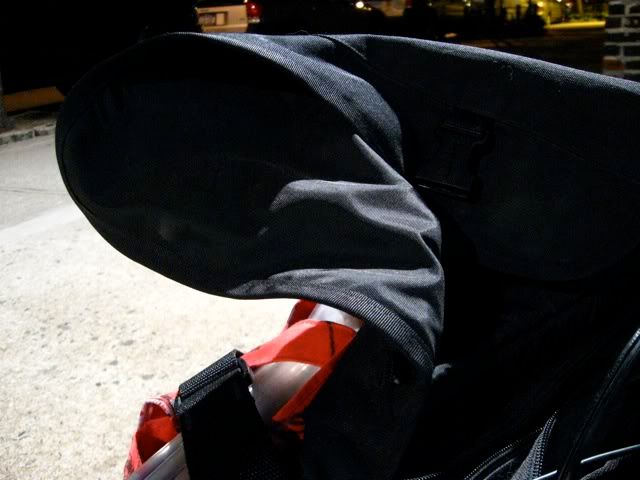One nice thing about living in New York is that you get to hang out with people like this once in a while…
Ladies and gents, Ms. Leslie Kritzer! DVD extra!! See the outtakes!!!11!!
I play rochambeau with ghosts, take photos of space, and ride my bike in the bus lane.
One nice thing about living in New York is that you get to hang out with people like this once in a while…
Ladies and gents, Ms. Leslie Kritzer! DVD extra!! See the outtakes!!!11!!
I’m watching HBO’s production of Bury My Heart At Wounded Knee. As others have noted, it would’ve been better if HBO had spent at least a season’s worth of Deadwood-style TV time on it instead of making it a 2.2 hour movie. Given its Hollywood drawbacks (pass the bombast please), we can still consolingly absorb our history vitamins as they are so bestowed on us by those finger-wagging Hollywood elites.

I’m particularly fascinated by Fred Thompson’s portrayal of Ulysses S. Grant, not least because as a youngster my next-door neighbor Roy Engel portrayed President Grant numerous times on Wild Wild West. Lincoln’s bully general (adopter of the scorched earth battlefied tactic) is also buried a few blocks north of me. (Hi Groucho!)
Grant was in the middle of a long line of 19th century Presidents who adopted the yoke of indian removal begun by Andrew Jackson. Grant’s logic in the movie is in agreement with General Sherman’s: We bought the land the Indians are sitting on from the French so it’s ours especially because there’s gold there so it’s our gold. (And those Indians really do freaky things with their tomahawks.) (Note to self: fix image wraparound.)
In this fact-checking and instant polling internet culture, it’s funny when you see the same logical leaps in present-day punditry from Thompson as he appeared on the “circle the wagons” show hosted by Hannity after the 2nd Presidential debate. The GOP talking points have been deemed mostly irrelevant and yet they’re repeated and repeated as though the logic is “Voters won’t get it until we pummel them with repetition.” (Keating Five who?)
And another thing: Failures of irony bug the crap out of me. Another instance of this was over at America’s Shittiest Website™ today where Michael Graham is shocked– ok “informing us”– that an “elite” Harvard professor is suggesting the current administration ignore the constitution one more time but this time, really for the good of the country. Bush went to Yale and some of you people still swing the elite charge around like a dead cat. Meanwhile, a co-chair in the McCain campaign calls himself and Obama “a guy of the street” last week. Connect the ironic elephant dots that are stampeding on your faces.

I’m snapping my rubber band for Josh Marshall.
Who would guess that the Alaskan government sometimes resembles Zackizackistan’s?


It’s photo post yall.

Read a piece in the March 08 Harper’s entitled “Fear of Fallowing: The Specter of a No-Growth World” (normally a subscription is required but it’s available here in PDF) by historical analyst, Steven Stoll. It’s a review of three books on the economy published last year. Economic growth as we know it is impossible.
Our trouble lies in a simple confusion, ont to which economists have been prone since the beginning of the Industrial Revolution. Growth and ecology operate by different rules. Economists tend to assume that everyday problems of scarcity can be solved by subsititution, by replacing tuna with tilapia, without factoring in the long-term environmental implications of either. But whereas economies might expand, ecosystems do not. They change–pines give way to oak, coyotes arrive in New England–and they reproduce themeselves but they do not increase in extent or abundance year after year. Most economists think of scarcity as a larger labor problem, imagining that only energy and technology place limits on production. To harvest more wood build a better chainsaw; to pump more oil, drill more wells; to get more food, invent more pest-resistant plants.
That logic thrived on new frontiers and more intensive production, and it held off the prophets of scarcity–from Thomas Robert Malthus to Paul Ehrlich–whose predictions of famine and shortage have not come to pass. The Agricultual Revolution that began in 17th C. England radically increaased the amount of food that could be grown on an acre of land and the same happened in the 1960s and 1970s, when fertilizer and hybridized seeds arrived in India and Mexico. But the picture looks entirely different when we change the scale. Industrial society is roughly 250 years old; make the last ten thousand years equal to twenty-four hours, and we have been producing consumer goods and CO2 for only the last thirty-six minutes. Do the same for 1 million years of human evolution, and everything from the steam engine to the search engine fits into the past 21 seconds. If we are not careful, hunting and gathering will look like a far more successful strategy for survival than economic growth. The latter has changed so much about the earth and human societies in so little time that it makes sense to be cautious than triumphant.
The whole piece is a useful church key to think about our present times. There is hope if you continue reading…


Be careful of shrinks. If you say the wrong thing (or the right thing depending on your point of view), they will call the cops and put you in the psych ward. There really are shrinks out there who view their job the same way an asshole cop does: whatever it takes to keep the streets free of dirt. Mr. Bad Vibes must not be allowed on television figuratively, or on the 6 o’clock news. Judge, jury, sometimes executioner.
I just watched I’m Not There, Todd Haynes’ brilliant film about Bob Dylan’s life in the 60s and early 70s. Yes, it’s brilliant. I’m listening to Dylan’s 1966 “Royal Albert Hall” concert. I’m behind the curve and need to stay up on these things when they hit the theaters. Anyone with a creative life, who has ever been onstage for an extended gig and has ever had to answer for it, or maybe if you’ve been a critic parsing someone else’s jello nailed to the wall — should have an appreciation for this film. If you’ve ever studied film, this is one for the books. The internets have enough written about it already. Do a google®.
In the commentary, Haynes throws out some zingers during the credits regarding freedom. I believe these were credited to Ginsberg and Rimbaud. “You are free only as long as you are free to say no.” And “No one is free. Even the birds are imprisoned by the sky.”
This brings me full circle to crap I usually talk about in this blog: politics. Bush’s insane “conservative” budget was ramped not just by the war on terror, but by a domestic spying program and police state (severe crowd control techniques) designed to intimidate naysayers into silence, as well as an expensive public relations effort designed to overwhelm naysayers and keep them out of mainstream media. I’m dead certain John McCain would continue expanding these mostly needless expenses that basically burn money and manufacture nothing — a largely overlooked black hole in the American economy. A transparent administration wouldn’t need such frivolity. Barack Obama appreciates that freedom without security is meaningless whereas security without freedom is an oxymoron. Obama embraces dialog and that is a breath of fresh air I can believe in.
George Bush has been the world’s (fascist) asshole cop long enough and needs to get in the shrink chair.

Oh, the difference a couple of years makes. I had friends and family members recoil in horror at some of the language I used to use to describe President Bush. “Why are you so angry?” they said. I don’t want to be an angry person and if I talk about politics, I’d like to keep it about things like healthcare, education, the environment, and infrastructure (Supertrains!). But I ticked off the 10 Most Awesomely Bad Moments of the Bush Presidency as they happened, and it’s true I got mad. Only now, Mr. Bush has turned the volume up to 11. The most I could ever really muster was to call Bush a fascist.
Here’s me in January.
I don’t get that [some] conservatives call Obama a socialist because he’s going to make only the extremely wealthy pay more taxes. It’s just not trickling down enough. Your precious freedoms aren’t going to be taken away and he’s not going to dismantle the military and the CIA and let extreme Islamism take over. Get a grip.

The diner is closed but the lights are on.
When this blog gets popular and discovered by your family, I’ll just have to write long posts about everything and post tiny pictures.



An amusement park up by Lake George, NY.
